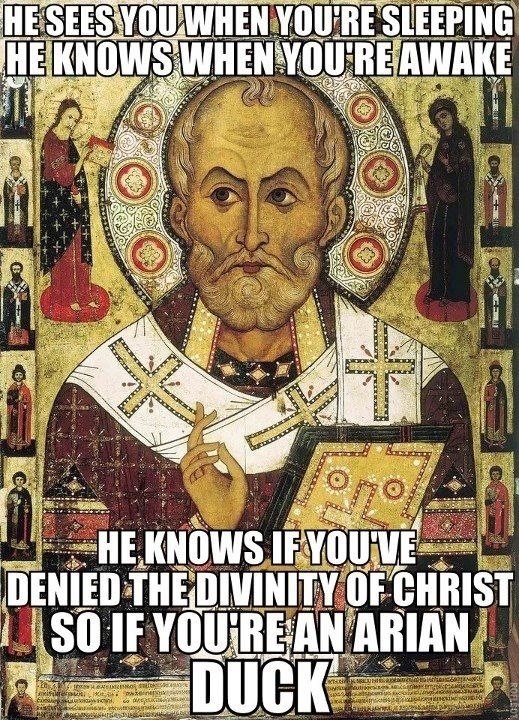No Christmas playlist is complete without this song, so it had to be included in these reflections, and as Noddy says

Before we look at the song itself, there should perhaps be a comment on the use of the word 'Xmas' in the title. The use of 'Xmas' is sometimes decried as a secular way of taking 'Christ' out of 'Christmas', however its use (or versions of it) go back almost as far as the English language itself. 'X' is a common abbreviation for Christ, and comes from the Greek letter Chi, which is the first letter of the Greek word Christos and is usually rendered as the English letter “X”. There is no doubt that there is a worrying increase in the amount of people who don't know that Christmas is to do with the birth of Jesus, but using 'Xmas' is not necessarily part of a campaign to secularise the festivities!
Holder wrote the lyrics to reflect a British family Christmas, but also to bring hope to a country that was suffering economically. Looking forward to the arrival of Santa (if the fairies have managed to keep him sober!) or the arrival of family, and all the fun to be had excites in us the optimism of “Look to the future now, it's only just begun”. No wonder people also love to sing “I wish it could be Christmas everyday” (which incidentally was beaten to the 1973 Christmas Number 1 by Slade). Celebration and hope are two of the emotions often associated with Christmas and for good reason.
The beginning of Luke's gospel, in which the four songs of the first Christmas are found, is full of celebration and hope. John the Baptist's father, Zechariah, says “Praise be to the Lord, the God of Israel, because he has come to his people and redeemed them...[and will] shine on those living in darkness and in the shadow of death, to guide our feet into the path of peace.” Children often find it hard to wait for Christmas, but the Jewish people had been waiting for Jesus for about 1000 years, since God's promise to King David of the everlasting reign of one of his descendants (2 Samuel 7), and for around 430 years since the last of the Old Testament prophets spoke of the coming of the Lord (Malachi 3-4). So Jesus' birth was the cause of great celebration as the longing for the coming Messiah was now at an end, which meant it was now the beginning of a better future.
Just as Slade looked for salvation from poor economic circumstances, the people of Israel looked for salvation from their political enemies, which at the time of Jesus' birth were their Roman occupiers. But Jesus would bring salvation from the root cause of poverty, war and all humanity's ills – the darkness of sin and the shadow of death: he would “give his people the knowledge of salvation through the forgiveness of their sins” (Luke 1:77).
However you're celebrating this Christmas, whatever hopes you have for the future, don't miss out on the chance to join in the real cause for celebration and the only hope that will not be disappointed. As the angel said to the shepherds “I bring you good news that will cause great joy for all the people. Today in the town of David a Saviour has been born to you; he is the Messiah, the Lord” (Luke 2:10-11). If you do you will have yourself a merry little Christmas!

